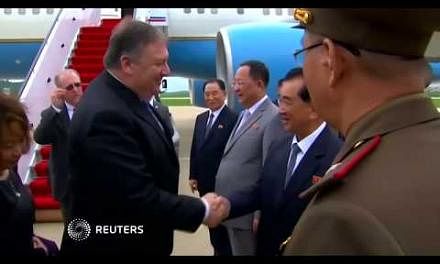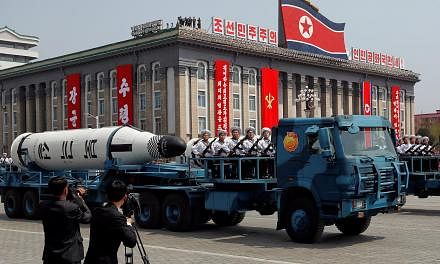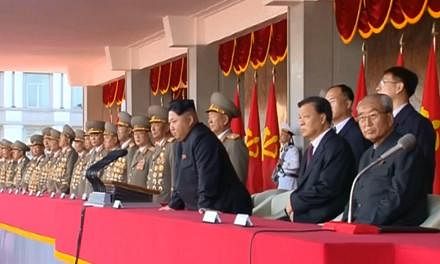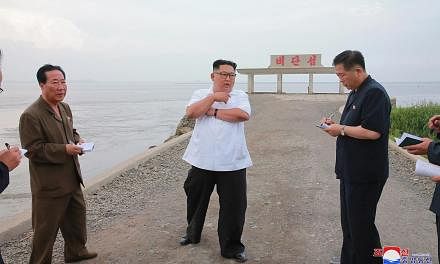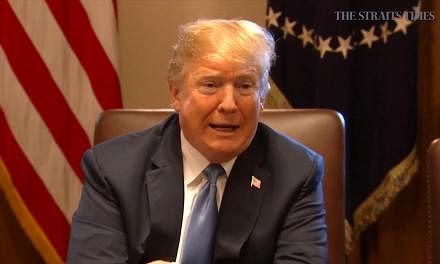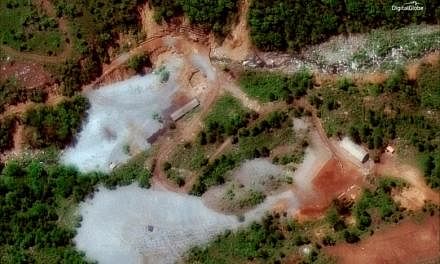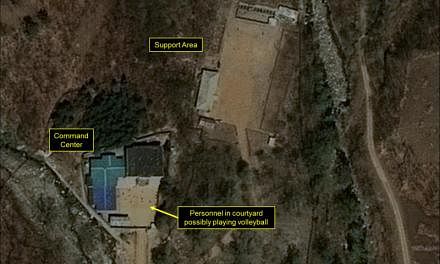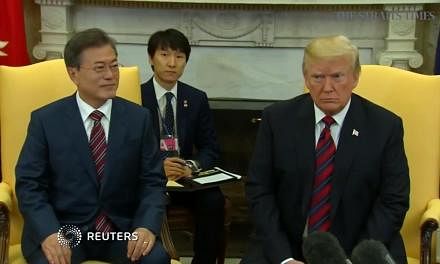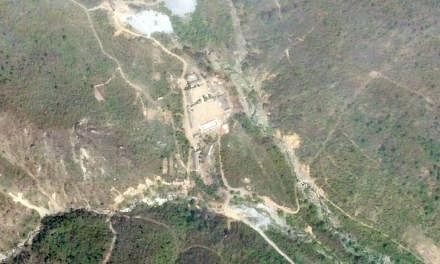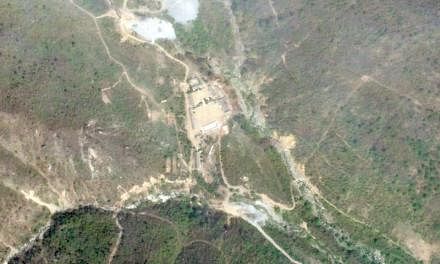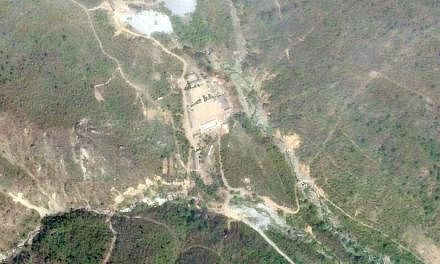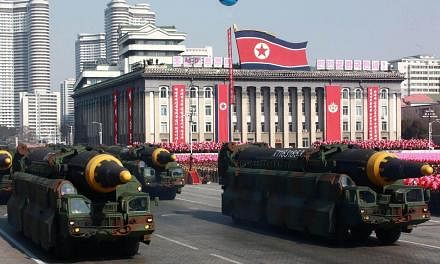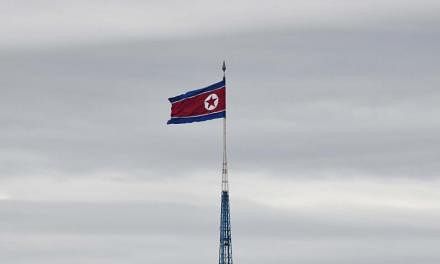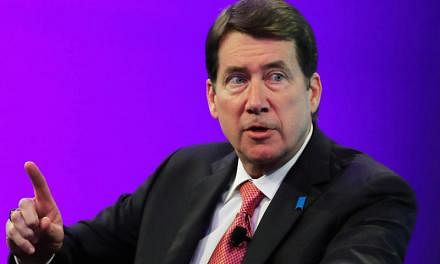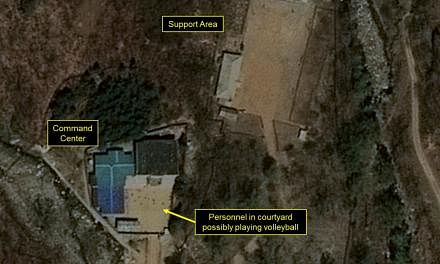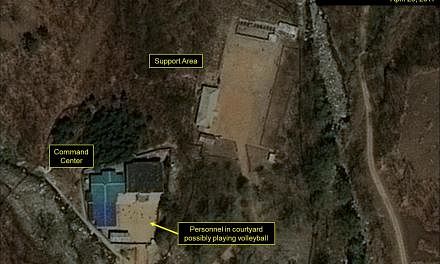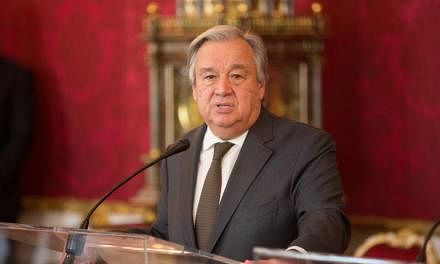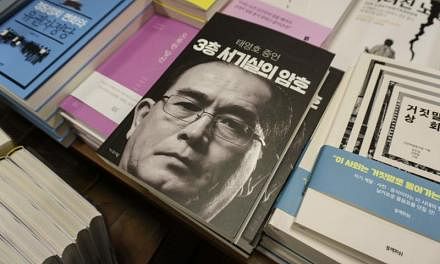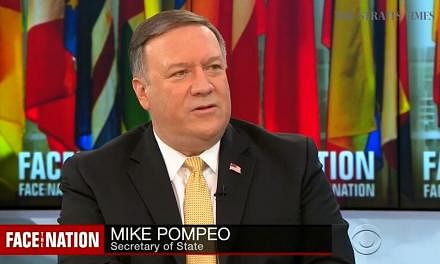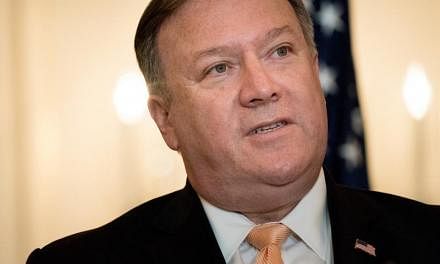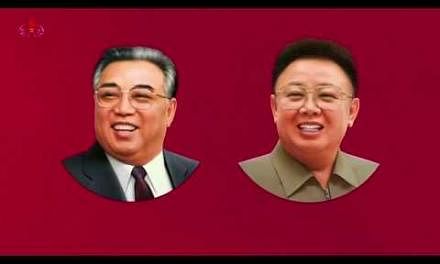WASHINGTON - The United States has not "declared war" on North Korea, White House Press Secretary Sarah Sanders said, dismissing as "absurd" North Korean Foreign Minister Ri Yong Ho's statement to that effect in New York on Monday (Sept 25) morning.
"Our goal is still the same : peaceful denuclearisation of North Korea through maximum diplomatic and economic measures," she said.
But Mr Ri's brief statement confirmed the worst forebodings of North Korea experts in the US - that the US and North Korea, propelled by angry rhetoric between volatile leaders, are lurching closer to war.
The two countries risk a "stumble into a war that nobody wants", Dr Sue Mi Terry, a top North Korea expert formerly with the Central Intelligence Agency and now a senior advisor at the consultancy Bower Group Asia told The Straits Times.
"Since the United States declared war on our country, we will have every right to make countermeasures, including the right to shoot down United States strategic bombers even when they are not inside the airspace border of our country," Mr Ri said.
"The whole world should clearly remember it was the US who first declared war on our country," Foreign Minister Ri Yong Ho told reporters.
North and South Korea are still technically at war, but observing an armistice since 1953, after three years of a devastating war that pulled in several powers.
Since then the two - and the US - have veered close to a resumption of war, most recently in 2010 when the North fired artillery at a South Korean island killing troops and civilians, in retaliation for South Korean test firing.
In a previous incident in 1994, North Korea shot down an American helicopter, killing one of its pilots.
In 1994, Bill Clinton was President; in 2010 it was Barack Obama. This time, President Donald Trump is a different proposition.
US media has reported that Mr Trump's aides advised him before his speech at the UN General Assembly last week not to goad Mr Kim, but the President did not listen.
Playing to the international community as well as his own nationalist support base, he derisively called North Korean strongman "rocket man" and said the US may have to "totally destroy" North Korea.
This elicited an unprecedented personal statement from Kim Jong Un.
The North Korean leader in a broadcast to the nation said "Now that Trump has denied the existence of and insulted me and my country in front of the eyes of the world and made the most ferocious declaration of a war in history that he would destroy (North Korea)… we will consider with seriousness exercising… a corresponding, highest level of hard line countermeasure in history."
"Whatever Trump might have expected, he will face results beyond his expectation," he said. "I will surely and definitely tame the mentally deranged US dotard with fire."
The unfazed Mr Trump doubled down, referring again to Mr Kim as "little rocket man" at a public rally in Alabama last Friday.
"There are a lot of things that are bad and counterproductive about this," Dr Terry said. "You can be firm and take strong steps on North Korea without resorting to this kind of rhetoric, making it personal, calling him names. He did not make any distinction between the regime and the people."
"We have not seen ever in North Korean history a leader coming out with such a personal statement. Kim Jong Un is taking this very personally and he cannot back down. He will not back down. I don't know if Trump understands that."
A part of the problem is that Mr Trump offered no alternative face saving path to Mr Kim, Dr Terry said. The US's efforts to build an international coalition against North Korea were also being jeopardised, she warned.
"This is very, very serious" Will Saetren, a research associate at the Institute for China-America Studies in Washington DC told The Straits Times. "We also have conservatives in Washington saying the US should shoot down the next North Korean missile. We don't know how Kim Jong Un will react to that."
While the risk of all out war remained low, he warned of accidents.
The UN Security Council and the US have tightened economic sanctions on North Korea, and US Ambassador to the UN Ms Nikki Haley has said diplomacy is the preferred path.
But "Trump has taken foreign policy out of the hands of his foreign policy team," Mr Saetren said.
"We are sleepwalking into a situation," he warned. "Normally it is service members lower down who can trigger an incident, but now this is happening at the leadership level. I hope we can tone this down."
Equally or more worrying than North Korea shooting down an American military aircraft would be Pyongyang firing a nuclear-tipped missile over Japan to explode in the Pacific, he said. "That could create a scenario so unacceptable to Trump that he could do something careless and stupid," he said.
China has long proposed a "freeze for freeze" solution to lower tensions - essentially North Korea suspending missile and nuclear tests, and the US suspending its military exercises. This has found little favour among hawks in Washington, and now it may be too late.
"We are getting further and further away from freeze for freeze," Dr Terry said. "The momentum of the rhetoric limits the options."
South Korea-based Shin Chang-Hoon, Senior Research Fellow at the Korea Institute for Maritime Strategy, tweeted: "By defining a declaration of war, if (North Korea) shoot, this means going to war. To limit the current tension, Ri should have talked just about right of preemptive self-defence. Things are going very bad."

